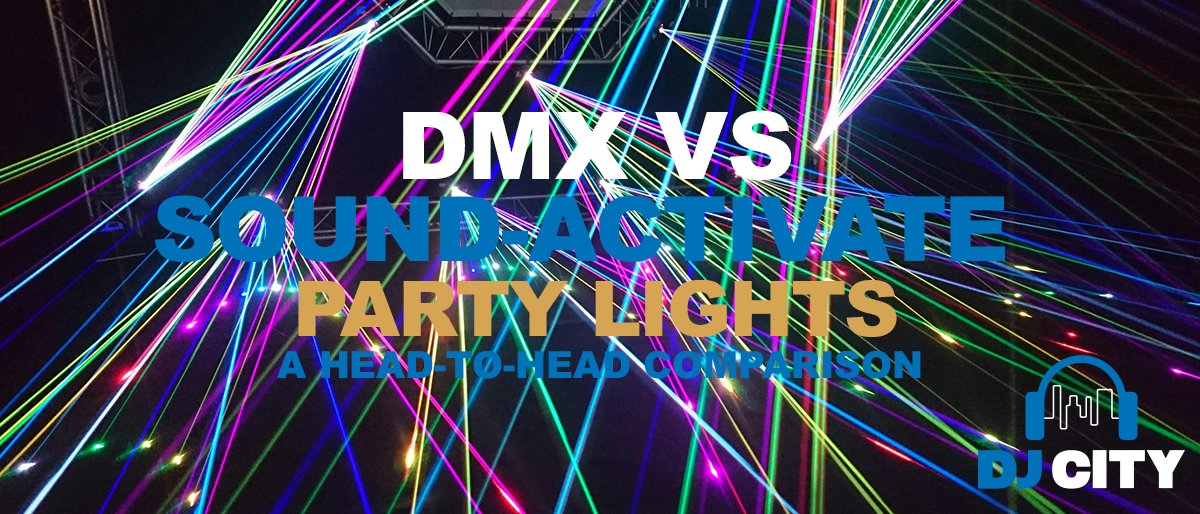
10 Costly DJ Mistakes Every Beginner Should Avoid
No DJ is perfect, and everyone’s going to make a mistake or two along the way. That goes especially if you’re a beginner DJ who’s just starting to play your first gigs. But some of them are just completely avoidable and could end up proving costly in terms of future bookings, damaging your equipment, and your reputation as a DJ. So in this article, we’re going to touch on 10 of the more common mistakes we constantly see in the industry. So you’ve got the upper hand and know how to avoid them!
- Ignoring red lights
- Cheaping out on USBs
- Not protecting your DJ gear
- Downloading from YouTube
- Updating software before a gig
- Unorganized tracks
- Failing to plan
- Taking friends into the booth
- Misusing or overusing DJ effects
- “I only DJ with vinyl”

Don’t Ignore Red Lights
First up, if you’re seeing red lights on your mixer, speakers, or equipment, you need to take action!
Sure, a little red light here and there shouldn’t cause much of an issue, if at all. Most mixers and PA systems are also capable of handling a certain amount of redlining before causing damage. But in saying that, do you really want to risk it?
Playing your mix well into the red zone means you’re pushing your gear to its limits, especially your speakers. And the last thing you want to do is blow your speakers midway through your set! Not to mention, redlining is guaranteed to distort your sound. They might not know exactly why, but the crowd will know something doesn’t sound right.
On top of that, when the sound’s distorting, it’s going to make it even harder for you to mix songs accurately when you’re not clearly hearing every nuance of your tracks.
Most venues will have a sound engineer in charge of audio, but all they can do is turn you down to avoid damaging equipment.
Don’t Get Cheap USBs!
Whether you’re a club DJ going from venue to venue, or you’re just someone who relies on USBs for all your music. You can’t cheap out on USB sticks! These days, portable storage is super cheap and affordable, so it’s no skin off your back to make sure you’re getting a reputable brand when you make your purchase. Avoid the cheap and nasty USBs with thousands of GB’s worth of storage and sound too good to be true. Because the last thing you want is for your music files to end up corrupt once you plug-in for your set.
If possible, always keep a backup on you as well. For such a tiny storage solution, USB sticks can easily be lost. So it’s a great idea to keep a spare in your bag in case you walk into the booth and find your USB hanging from your key chain has decided to go walk-abouts. I don’t know about you but I don’t think there could be anything worse than turning up to a DJ gig with no music! It’s certainly not going to help you get booked in the future.
Not Protecting Your Gear
You’ve saved your hard-earned and invested big money into your gear, so why not keep it protected? DJ Bags, Flight Cases, and Decksavers are simple solutions to keep your gear in the best condition. DJ bags and cases by brands such as Magma are going to add an extra and reliable layer of protection, rather than just throwing your mixer into the boot.
Yes, sometimes DJ Cases and bags can get expensive. But your gear was too! So it’s an investment worth making.
If you’re REALLY on a budget, the least you can do is keep the boxes your gear comes in! It may not be as flashy as a premium flight case, but it’s going to do the job and can even mean the resale value is higher. People get a little bit more peace of mind buying second-hand gear when they’re getting the box as well!
Downloading From YouTube
If you want to be taken seriously as a DJ, you have to get serious about where you’re getting your music. Sure, it’s easy enough to rip tracks straight from YouTube. But you’re going to be massively sacrificing quality. You might not notice it playing on your speakers in your bedroom. But take it to the main stage and it’s just not going to translate as well on a big PA system.
So where do you get your music from? Whether you’re looking for intros, outros, acapellas, or original edits, DJ Pools are a great place to look. Allowing you to download high-quality, DJ-ready versions of tracks that are sure to help get the party started! We’ve put together a list of our favourite DJ Pools that you can find in our blog post here. Or, by checking out the video below! Make sure you subscribe to stay up to date with the latest products, tips, tricks, and tutorials.
Software Updates
Another big no when it comes to DJing is doing updates right before your gig! Whether you’re performing an update on your DJ Software, or upgrading your entire operating system; you have to be careful with software updates. Many times, especially in the case of Mac OS as we saw with the latest Big Sur update, doing an update can potentially break all compatibility with your software.
At the time of a new release, software developers rarely get enough of a heads up to keep things compatible. Especially when you see an update with as big of an overhaul as Big Sur.
Unorganized Tracks
If you’ve already accumulated thousands of tracks, sitting down to organize them can truly seem daunting. However, it’s going to make things so much easier when planning your sets in advance. Obviously, you’ll want to label by the obvious ones such as genre and mood. But you also want to make sure you’re keeping tabs on those explicit songs in your library.
Imagine setting up for a children’s party or family-friendly event and playing a song you didn’t realize was full of swearing. It’s never going to end well!
Failing to plan, is planning to fail
Again, this is something that every DJ should be doing before every set. You wouldn’t leave the house without brushing your teeth in the morning. So you shouldn’t walk into a gig blindly without any planning or preparation. Not only should you have a pretty good idea of what songs you’re going to play. But you also need to consider your timing.
Especially if you’re playing towards the start of a night, you want to avoid playing all the prime time bangers too early. There’s a good chance the crowd hasn’t packed the dance floor yet, so it’s not going to be ideal playing the biggest tracks straight up. Few people are dancing, many are trying to build up the liquid courage, and your tracks are going to fall short. This is a mistake made by so many DJs who are yet to realize the role of the opening DJ is to slowly warm-up the crowd and get them ready for later in the night.
Taking your friends into the booth!
We see it all the time and its a big mistake, DJs bringing the whole entourage into the booth! Why!? Now look, you’re playing a venue and want to bring a few friends, great. They can really come in handy if you’ve got an empty dance floor and your mates are game enough to tear it up to encourage others. But don’t let them in the booth,
To the crowd, it seems like you care more about having a blast with your mates than giving the crowd a good night. But we’re talking about mistakes, and it might not be you. But having your friends jumping around in the booth with you means one of them can just as easily pull the plug on the sound for your whole show.
I’ve seen it before, the whole crowd goes silent because someone you bring into the booth cuts the sound. But the buck stops with you, and you’re the one who going to wear the consequences when you don’t get booked again!
Misusing Effects
Another mistake I see DJs making all the time is misusing effects! Whether you’re using them in the wrong spots, or just going overkill on them; it can completely turn people off! Stay away from the air horns!
However, at the same time, effects can also be just as useful in bringing your set to life. One that beginners often struggle to get right is Reverb. When do you use it, and how much do you apply? We’ve written an article entirely on this topic so you know exactly how to use Reverb the right way during your mix. Check it out here!
“I only mix on Vinyl”
If you’ve ever uttered the above statement in a conversation, this one is for you. I get it, vinyl is great. The nostalgia, the sound, and the feeling you get loading a record onto your turntable. But, if you want to make it as a DJ and refuse to use digital, you’re only holding yourself back.
The number of clubs and venues using traditional vinyl setups is bare minimum these days. If you do find they’re using turntables, they’re running a DVS System (Digital Vinyl System). So keep your turntables in your arsenal, but at least invest in a DVS System. You don’t want to shy away from digital either!





